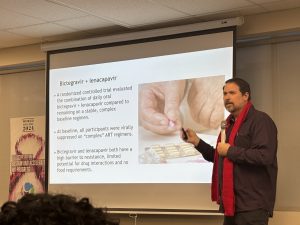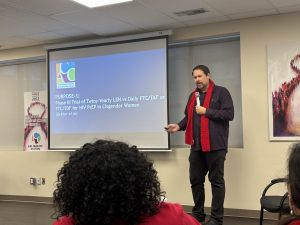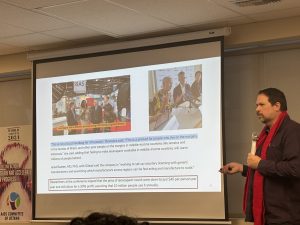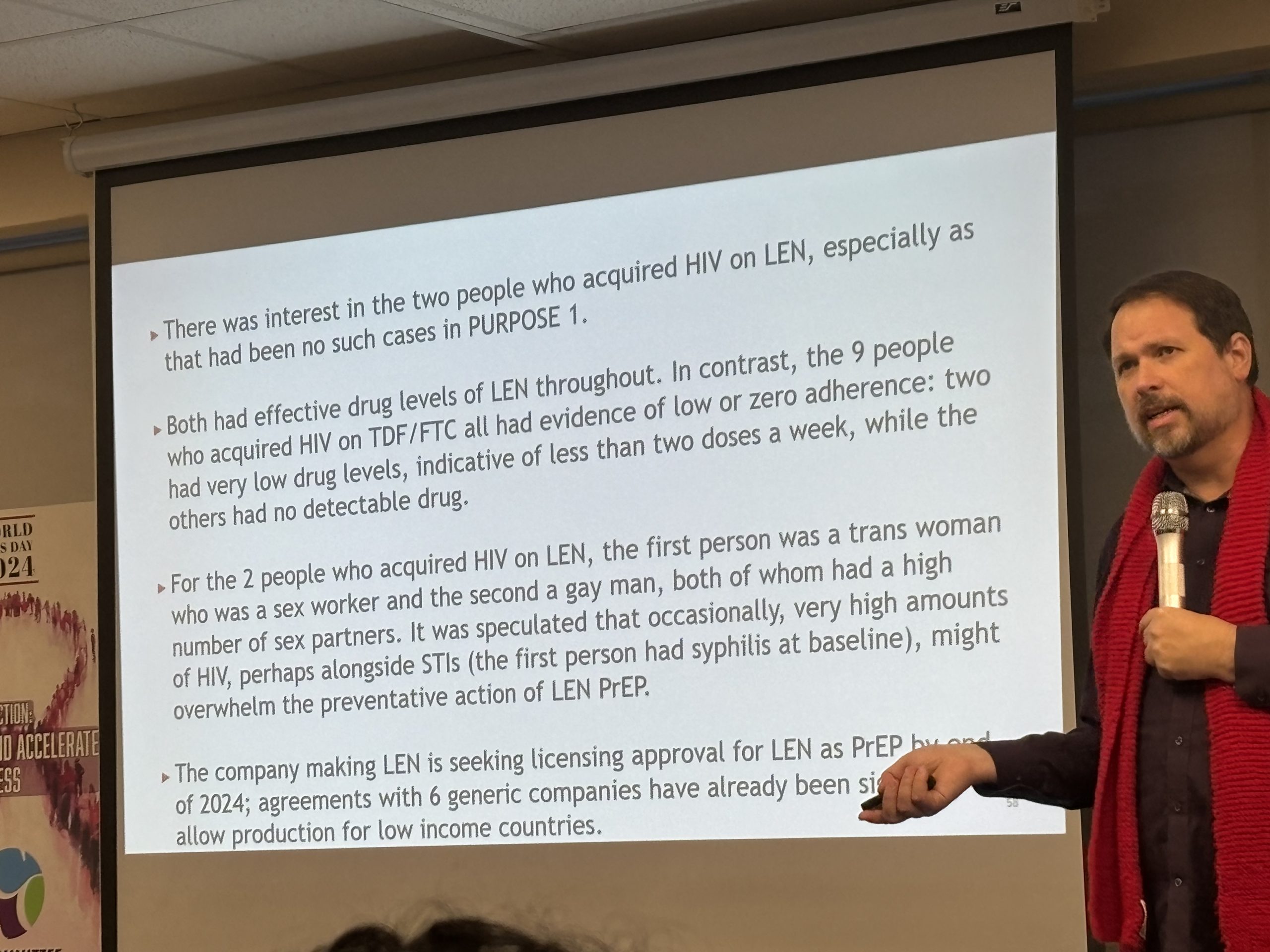In the heart of Canada’s diverse multicultural landscape, one community remains disproportionately impacted by HIV—yet remains often invisible in discussions about the virus. The African Canadian community, which boasts a rich cultural heritage and a vibrant presence across the country, is grappling with a persistent issue: the stigmatization and marginalization of those living with HIV.
Organizations such as the Canadians of African Descent Health Organization (CADHO) play a crucial role in this regard. Through programs and collaboration with Collaborative Critical Research for Equity and Transformation in Health (CO-CREATH) and AIDS Committee of Ottawa (ACO), CADHO has been able to raise awareness, educate, and call on communities to fight stigma and discrimination that has long plagued the Black community in Canada when it comes to HIV.
More recently, at the December 1, 2024 World AIDS Day event held at the AIDS Committee of Ottawa, the president of CADHO, Professor Josephine Etowa, said during her presentation that in Canada, there were an estimated 65,270 people living with HIV (PLHIV) in 2022, according to 2024 statistics from the Public Health Agency of Canada, and some progress towards the 95-95-95 UNAIDS targets is at 89 percent PLHIV diagnosed, 85 percent on treatment, and 95 percent had suppressed viral load.

Josephine Etowa, a full professor at the School of Nursing, Faculty of Health Sciences, University of Ottawa, spoke at the World AIDS Day event, 2024, organized by the AIDS Committee of Ottawa.
Despite this progress, barriers still exist. These challenges, Prof. Etowa highlighted in her presentation, include social HIV stigma, racism, colonialism, criminalization and incarceration, homophobia, and transphobia affecting populations that are disproportionately impacted by HIV, including two-spirit people, gay and bisexual men, trans, queer, questioning, and non-binary people, people who inject drugs (PWID), and African, Caribbean, and Black (ACB) communities and Indigenous communities” .
She said, according to a survey of ACB people and people who use drugs, that participants who attempted to access HIV testing, 40.5 percent and 49.5 percent, reported difficulties accessing the service, respectively.

Dr. Jason Brophy, a pediatric infectious diseases specialist and researcher at the Children’s Hospital of Eastern Ontario (CHEO), spoke at the World AIDS Day event, 2024, organized by the AIDS Committee of Ottawa.
Etowa, who is also a full professor of nursing at the University of Ottawa, said that multiple historical and present-day factors, such as racism and other social determinants of health, are known to account for the disproportionate health risks and differential health outcomes experienced by ACB people in Canada.
She highlighted that these conditions have affected how ACB people live and maintain well-being while dealing with the burden of racism and how social determinants of health combine to amplify systemic threats to health, subsequently rendering ACB people vulnerable in terms of both their physical and mental health.
Giving a global perspective of what progress has been made, Dr. Jason Brophy, an infectious disease specialist at the Children’s Hospital Eastern Ontario (CHEO), during his presentation at ACO, said one of the many life-changing results in the fight against HIV globally is the manufacturing of Lenacapavir.
The executive director of UNAIDS, Dr. Winnie Byanyima, described the “miracle tool” as a feminist product for girls in Africa, empowering them to negotiate safe sex with a man without fear of HIV.

Dr. Jason Brophy, reeling out the latest statistics on HIV globally.
In his presentation, Dr. Brophy emphasized that in Sub-Saharan Africa, adolescent girls and young women account for three out of every four new infections. However, he highlighted that lenacapavir has revolutionized the HIV response, not only in Africa but globally as well.
He said assisted technology such as stem cell transplants has helped people living with HIV be free from the virus, with examples from a 50-year-old woman from France and a 60-year-old man from Germany.
Professor Etowa adds that the collection of race- and ethnicity-based information is a key element in recognizing and understanding health disparities and identifying the intersection of race with other social determinants of health, which can help provide a comprehensive portrait of Canada’s HIV and related health landscape and barriers to care.
Moreover, healthcare professionals often fail to recognize the unique needs of Black people living with HIV. From cultural competency training for medical staff to better outreach efforts from public health authorities, advocates are calling for greater attention to the intersection of race, stigma, and HIV care.

“We all have a responsibility to implement anti-racism policy and practices that are grounded in foundational social justice and equity principles and strategies,” Prof. Etowa adds.
As CADHO persists in its advocacy, it is evident that while the path ahead may present challenges, the community’s resilience and determination will play a crucial role in eliminating the stigma associated with HIV. Through awareness, education, and compassion, the stigma can be dismantled, and the Black community in Canada can take its rightful place in the ongoing conversation about HIV.

